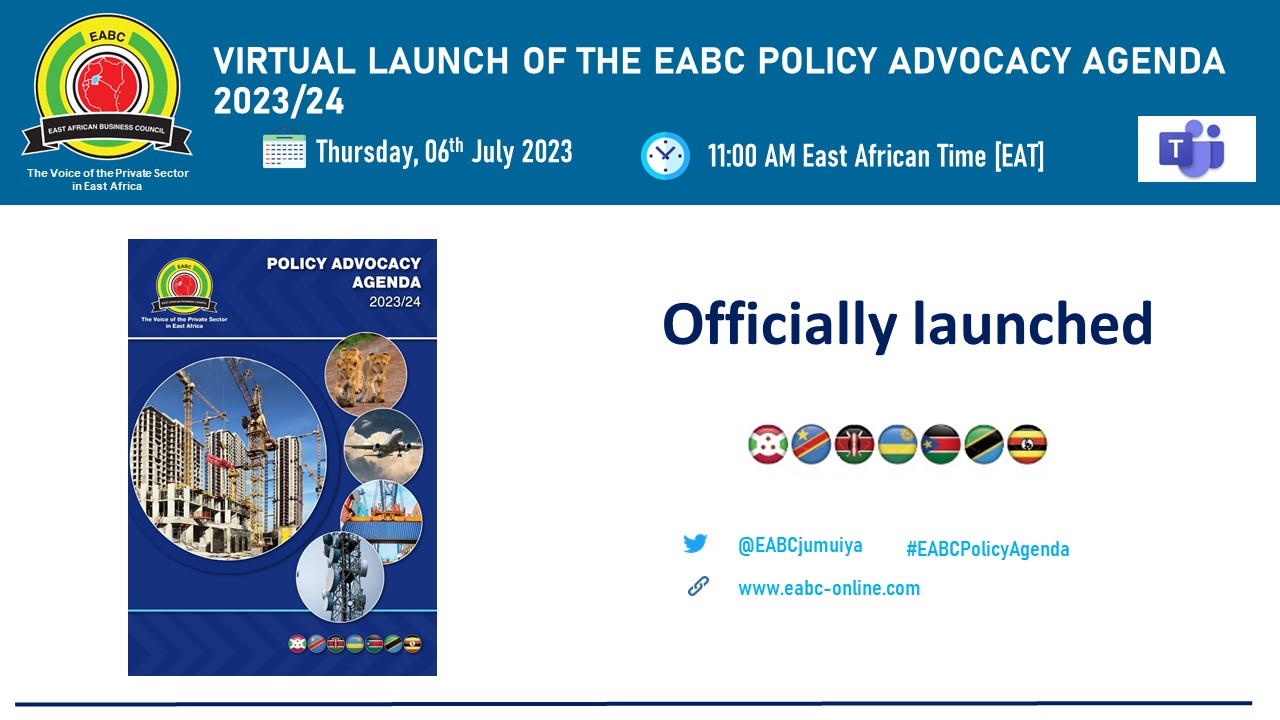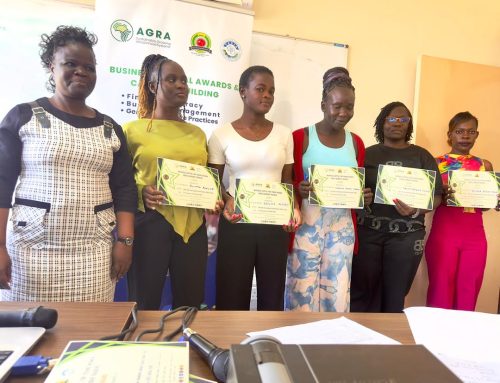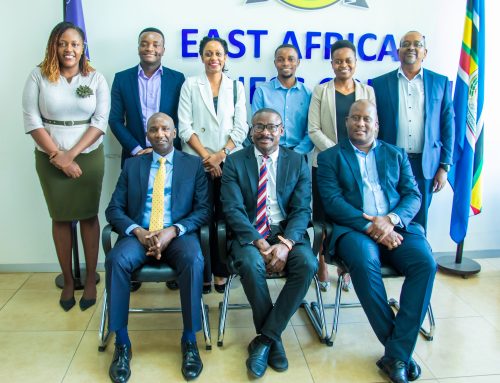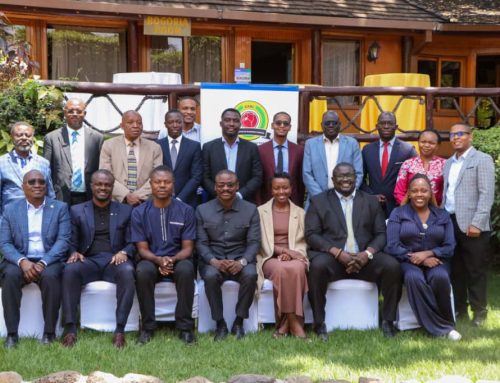Thursday, 6th July 2023 Arusha, Tanzania: Mr. Rwabwogo Businge, EABC Board Member, Hon. Francoise Uwumukiza, Chairperson of EALA Committee on Agriculture, Tourism, and Natural Resources, and Mr. John Bosco Kalisa officially launched the EABC Policy Advocacy Agenda 2023/24
The EABC Policy Advocacy Agenda is an annual document presented to the EAC Council of Ministers and EAC Secretary General that highlights private sector policy proposals and reforms to address key challenges hindering the seamless flow of goods, services, and investments within the East African Community (EAC).
Mr. Rwabwogo Businge, EABC Board Member, said the East African Business Council (EABC), in collaboration with development partners and the Governments of the EAC Partner States, aims to drive meaningful change and foster an enabling business environment in the region.
In his remarks, Mr. Kalisa said, “Following last year’s policy agenda, EABC advocacy has recorded key achievements such as, admission of Democratic Republic of the Congo (DRC) into EAC, adoption of the 4 band EAC tariff structure, Ratification of the African Continental Free Trade (AfCFTA) by EAC Partner States, and each EAC Partner State has committed to liberalize at least 78 sub-sectors of the 7 agreed service sectors in the bloc.
Hon. Francoise Uwumukiza called for the elimination of Non-Tariff Barriers, especially on agricultural products, to enhance food security. She lauded the Recommendations of the Policy Advocacy Agenda 2023/24 as central to boosting intra-EAC trade.
One of the critical areas of focus for the EABC Policy Advocacy Agenda 2023/24 is the implementation of the East African Community Common External Tariff (CET) 2022 Version. Challenges persist, such as the application of stays of application by some Partner States and the country-specific duty remission for certain inputs, creating an uneven playing field. EABC recommends the uniform application of the new CET across all Partner States and heightened sensitization efforts by the EAC Secretariat to ensure a smooth transition.
On EAC trade agreement with third parties, Mr. Adrian Njau, EABC Trade & Policy Advisor said “The EAC Partner States should collectively negotiate agreements with third parties to enhance mutual trust and preserve the Customs Union and common policy in the field of external trade.”
He elaborated that the EU and Kenya recently signed the Economic Partnership Agreement (EPA) based on EAC Heads of State Summit directives that the Partner States who want to sign and implement the EPA can do so based on the principle of variable geometry. However, EABC would like to see all EAC Partner States sign and implement the agreement as a bloc to avoid distortion of EAC CET when Kenya commences liberalization of tariffs with the EU.
Other areas of the EABC Policy Advocacy Agenda 2023/24 are:
Harmonization of Customs & Domestic Taxes: The unharmonized charges of equivalents on imports, including the Railway Development Levy/Infrastructure Levy and Import Declaration Form (IDF), pose challenges for businesses operating in the region. Domestic tax disparities further hinder resource allocation and encourage illicit trade. EABC recommends the elimination of discriminatory domestic taxes on EAC originating goods and harmonization of all charges of equivalent effect levied on imported goods.
Elimination of Non-Tariff Barriers (NTBs): Non-Tariff Barriers continue to pose significant challenges, impacting the trade of EAC-originating goods and leading to increased costs and delays. EABC calls for the elimination of all outstanding NTBs and the establishment of a clear timeline for finalizing the amendment of the EAC Elimination of NTB Act, 2016, and its regulations. The EAC Heads of States’ directive is crucial in addressing these barriers effectively.
Activation of Trade Remedies Committees: To address persistent trade disputes and enhance trade-related cooperation, EABC advocates for the activation of the Committee on Trade Remedies and the EAC Trade Committee. These mechanisms will provide a platform for resolving disputes, handling issues related to rules of origin, anti-dumping measures, safeguard measures, and other trade-related concerns. EABC emphasizes the need for the timely ratification and operationalization of these committees.
EAC Common Market- Liberalization of Trade in Services: The liberalization of trade in services within the East African Community is a priorityfor EABC. However, delays in implementing revised commitments and negotiating additional commitments in key service sectors continue to impede progress. EABC calls for the expedited implementation of revised commitments and the initiation of negotiations to broaden service integration in sectors not covered under the current liberalization framework.
Telecommunications and Air Transport Services: The challenges faced in the telecommunications and air transport sectors include high costs, limited competitiveness, and lack of liberalization. EABC recommends the adoption of the One Network Area (ONA) model by all Partner States to lower the cost of voice and data services across the region. Additionally, the swift finalization of the EAC Liberalization of Air Services Regulations and adoption of the Single African Air Transport Market (SAATM) are crucial steps to enhance air transport services.
Free Movement of Workers: A harmonized work permit regime in the EAC is needed to enhance the free movement of workers.
Support for SMEs: The EAC should put up policy reforms to support small and medium-sized enterprises (SMEs), youth entrepreneurs, and women in business, including streamlined tax administration, improved access to finance, and harmonized legal and regulatory frameworks.





